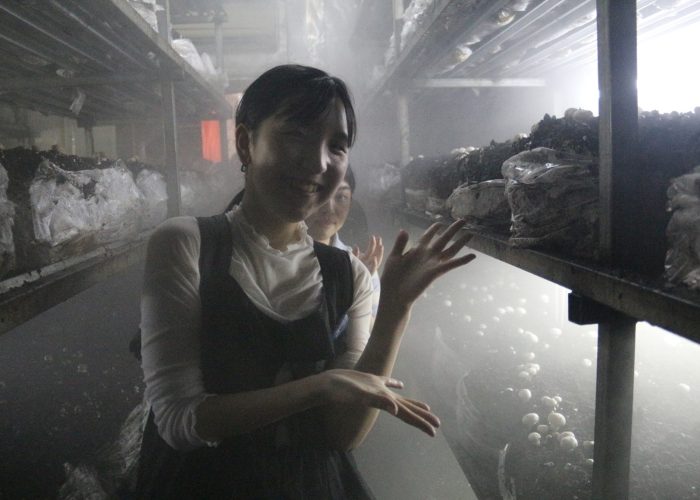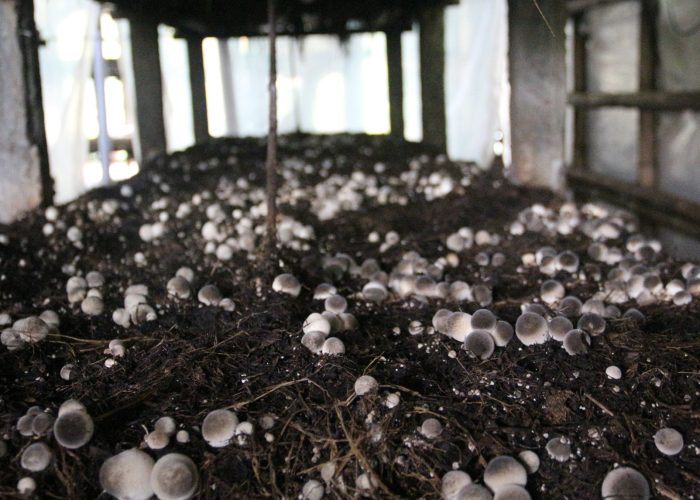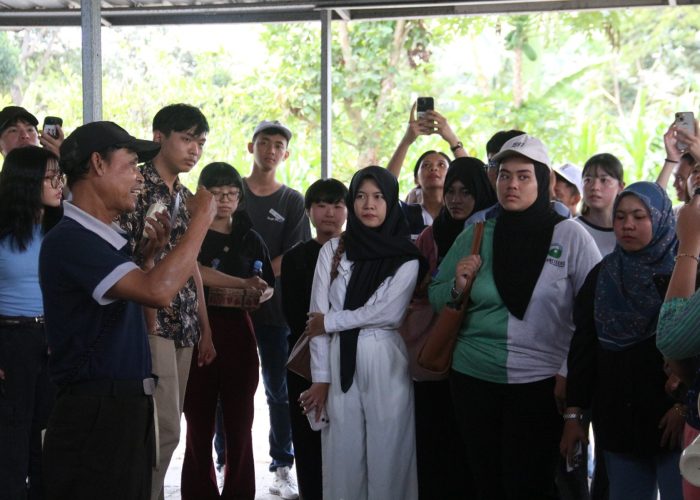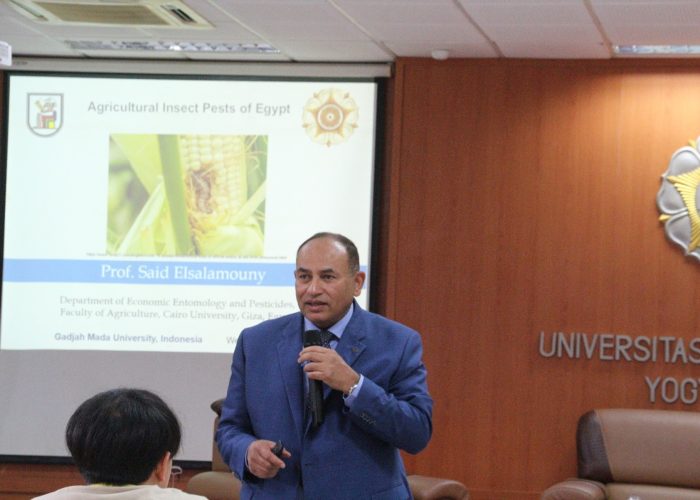Yogyakarta, 31 July 2024 – The lecture series on the agenda of The 7th International Summer Course in Sustainable Development: Sustainable Bioprospecting of Tropical Biodiversity continues. The next lecture raised topics related to insect bioprospecting with speakers Sukirno, Ph.D., lecturer at the Entomology Laboratory, Faculty of Biology UGM, and Prof Said Ali El Salamouny, a professor in the field of entomology, especially insect viruses at Cairo University, Egypt. The lecture panel was moderated by a lecturer from the Animal Systematics Laboratory in the Parasitology section of the Faculty of Biology UGM, Dila Hening Windyaraini, S.Sc., M.Sc.
Mr. Kirno delivered his presentation regarding insect bioprospecting. On that occasion, he also brought processed insect products in the form of fried grasshoppers and fried cocoons. Both foods, which were less commonly heard of, were tried by the participants. Some of them admitted that the taste was similar to shrimp, saying that insects could be a source of protein, like marine crustaceans such as shrimp.
Continuing the presentation regarding insect bioprospection by Pak Kirno, Prof. Said then delivered his presentation on entomology, especially related to agriculture and plant protection in the Middle East, especially Egypt. He provided new understanding, especially the differences in agriculture in Egypt compared to tropical countries like Indonesia.
The Summer Course agenda continues with a mushroom cultivation workshop at JeJamuran, a restaurant in Jogja which is famous for its culinary delights from various types of mushrooms. The workshop location is in the JeJamuran agrotourism area, not far from the main restaurant. Participants were introduced to various types of mushrooms, how to cultivate them and learned about the right environmental conditions for mushroom growth. As souvenirs, workshop participants can also take-home mushroom planting media that they can grow themselves at home.
Through this series of summer course agendas, it is hoped that it can broaden the participants’ insight, especially regarding the potential for bioprospecting resources which are not limited to certain plants, but also things that are not commonly developed in bioprospecting studies such as insects and fungi.





